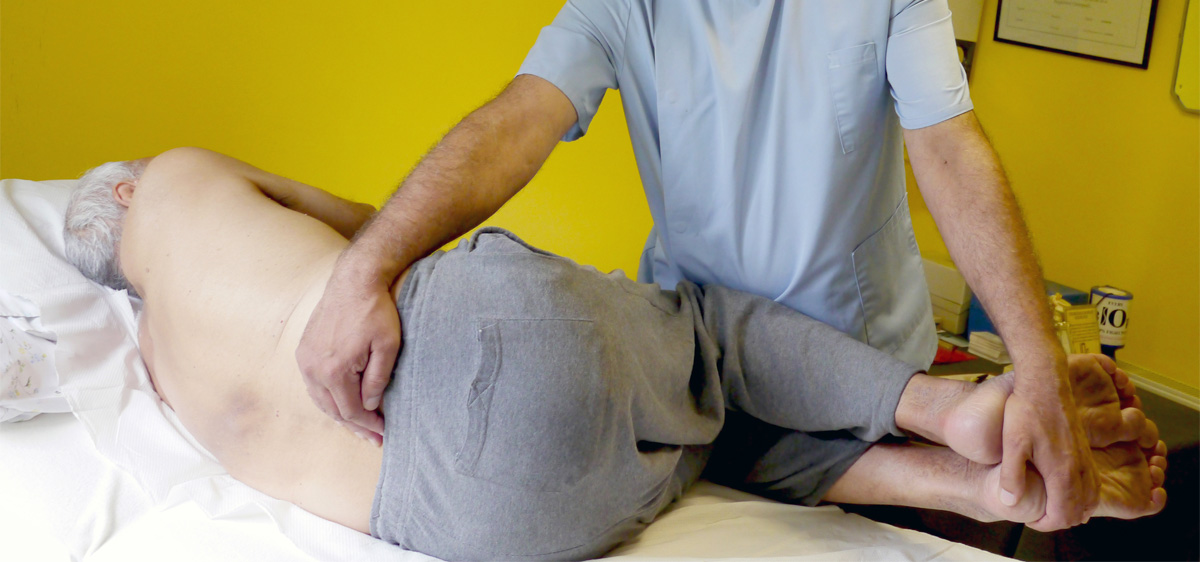
Osteopathic Consultations
Who may be helped by Osteopathy?
Osteopaths deal mainly with symptoms involving the musculo-skeletal system.
Some of the problems which patients have consulted me for, and for which there is some evidence of effectiveness for the use of Osteopathy, are:
-
General, acute & chronic back pain
-
Generalised aches and pains
-
Sciatica
-
Joint pains
-
Neck pain
-
Headaches arising from the neck
-
'Frozen shoulder' pain
-
Shoulder & elbow pain
-
Arthritic & rheumatic pain
-
Muscle spasms
If your symptoms are not listed above, it may be worth calling me to ask if osteopathic treatment might help you.
What happens in a Osteopathic Consultation?
The case history
I will take a case history, from the story you tell me about your presenting symptoms, usually musculo-skeletal and joint pain, and their intensity, location, and what makes them better and worse. I will ask about whether you have already consulted anyone else about your symptoms, and whether any treatments previously given were effective.
I will also ask about your medical history, finding out if you are currently suffering from ill-health or had previous ill-health and whether you have had any surgery, and note down if you have had any injuries due to falls, road traffic accidents or fractured any bones. I will note down if you have been prescribed and are taking medication, and details of any major medical procedures.The medical history may sometimes have a strong bearing on the current symptoms.
The Osteopathic Examination
The examination is carried out to find out how your locomotor system is working and where and why it is not working well. I will ask you to do some movements (active movements) to see whether these are restricted in any range. I will palpate muscle and soft tissue for tone and texture, and carry out movements of your joints to test the passive range of movement.
If necessary, I may carry out basic neurological and strength tests.
The case history and examination will help to build up a picture of what is happening in your musculo-skeletal system and why the body is complaining by exhibiting symptoms. I will explain to you what I have found, and discuss with you my working diagnosis of your problems. I will also discuss with you what I intend to do in terms of Osteopathic treatment to relieve your symptoms.
If I am concerned about anything in the history or examination, and that further medical investigation is needed I will let you know, and advise you to see your GP. We may be able to continue the Osteopathic consultation once we have assurance from your GP.
*For the examination to be done effectively, you may need to undress, sometimes down to underwear: patients are asked to bring loose tracksuit bottoms or shorts (ladies may bring leggings) as wearing these will maintain modesty and will allow for a clinical examination to be made.
The Osteopathic Treatment
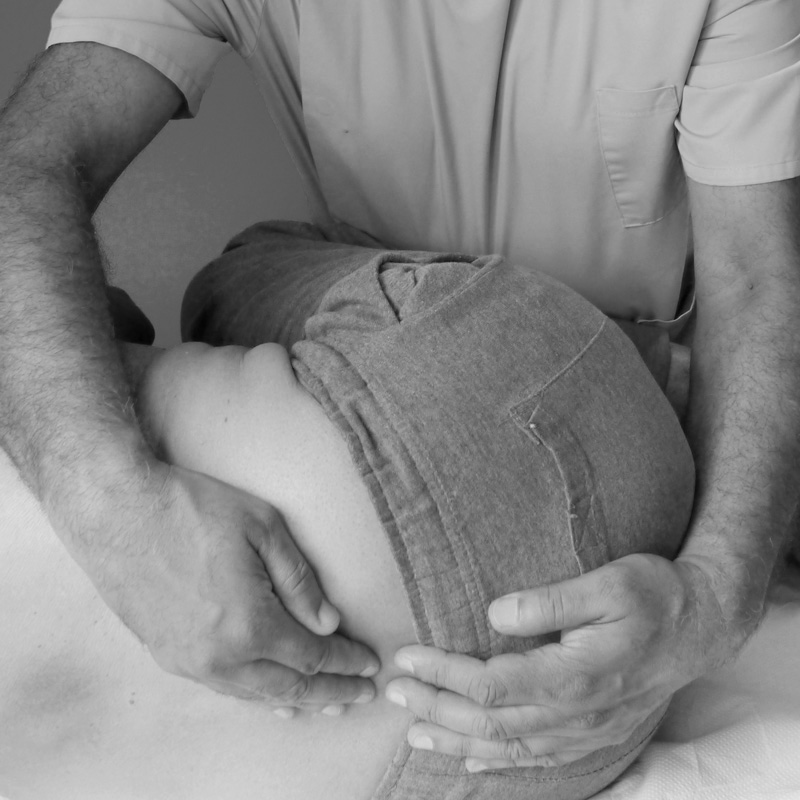
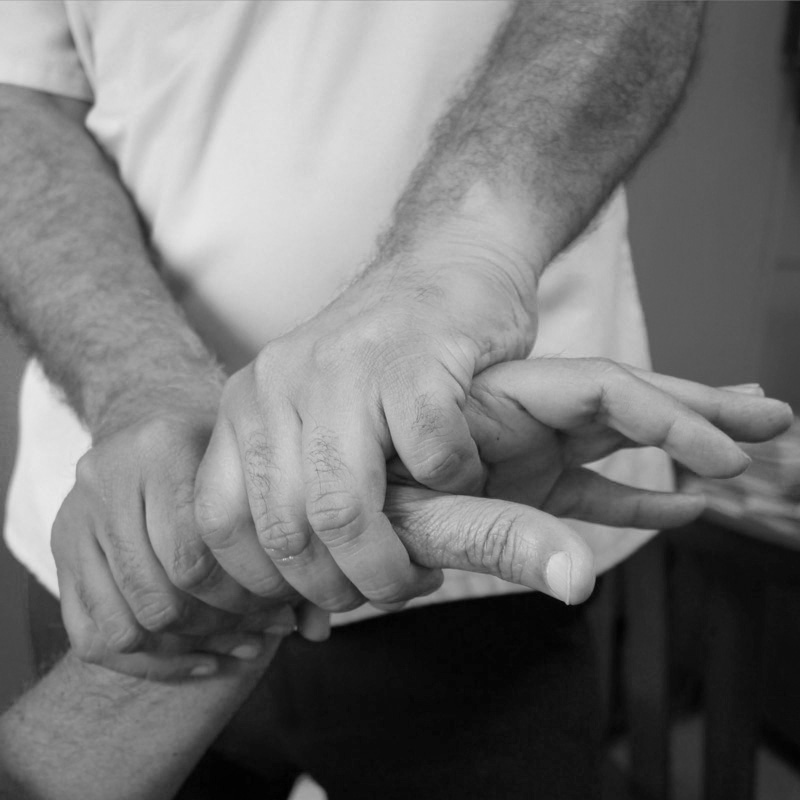
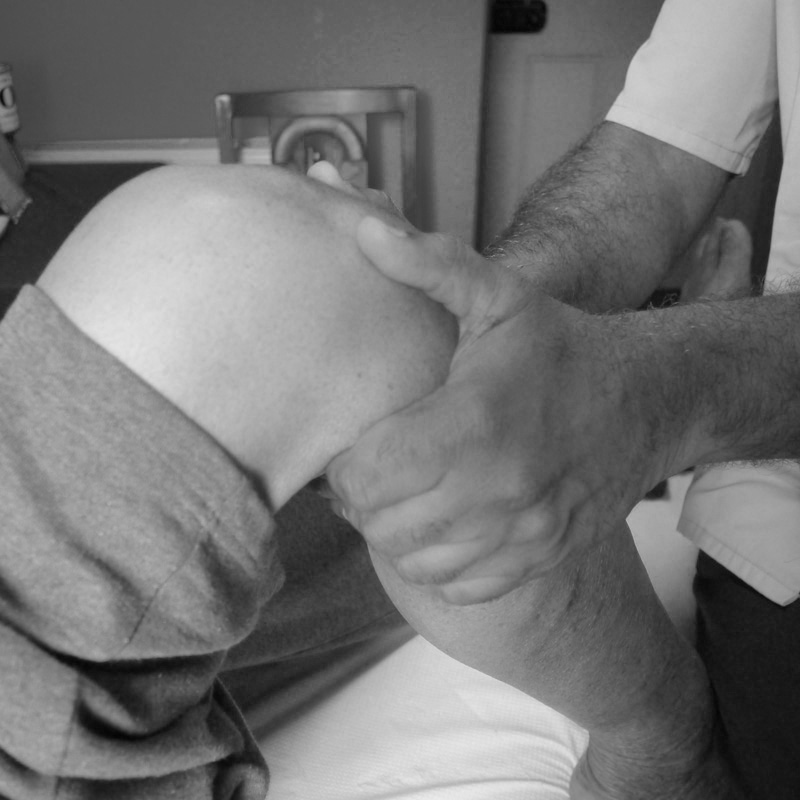
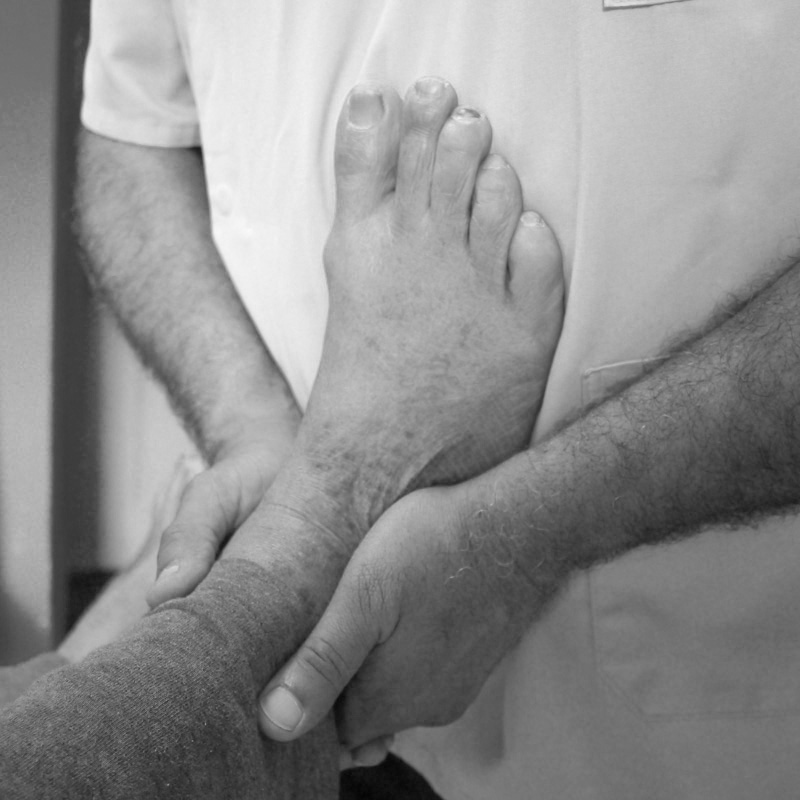
If there are no contra-indications, such as ongoing pathology or recent fracture, then I can begin treatment to help you.
My approach is continually evolving, and presently I am using a lot of soft-tissue massage-type techniques, joint articulation techniques and, rarely, the judicious use of joint manipulations.
In addition to my hands-on work, I will invite you to do some work to help yourself, such as doing some gentle stretching exercises, adjusting your posture at work and home, and to limit the amount of time you stay sedentary, as that may lead to many sorts of problems.
What are the benefits of the osteopathic treatment?
Patients have reported that they feel less pain and stiffness, can move with more ease, can function better, and sometimes even sleep better, which can help with overall functioning.
What are the risks of the osteopathic treatment?
Up-to-date research suggests that the most common adverse effects are temporary tenderness or increase in pain. Serious adverse effects are extremely rare and vary with the type of treatment given and from patient to patient. I will give you my assessment of the risks of my treatment once I have taken a case history, examined you and carried out any relevant tests.



